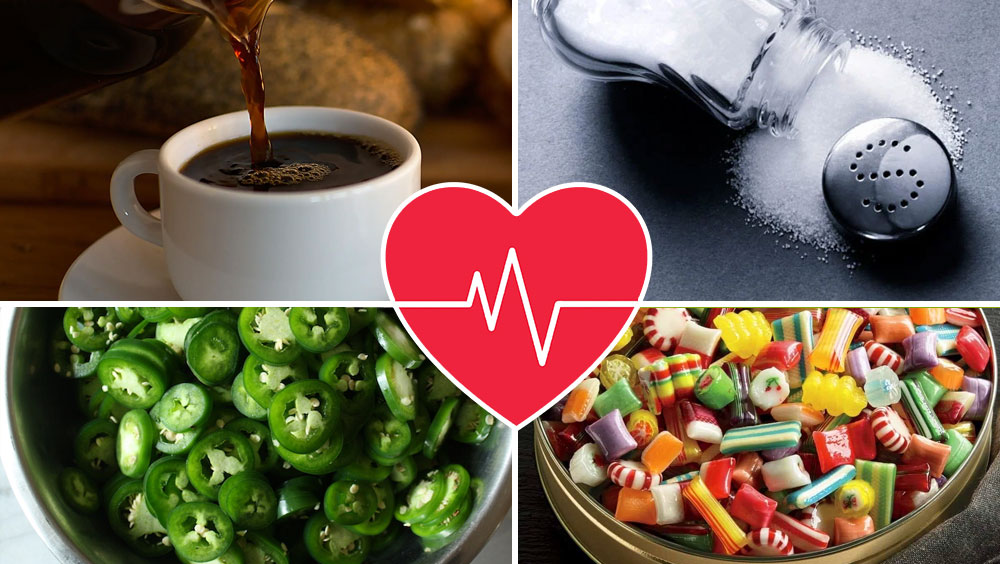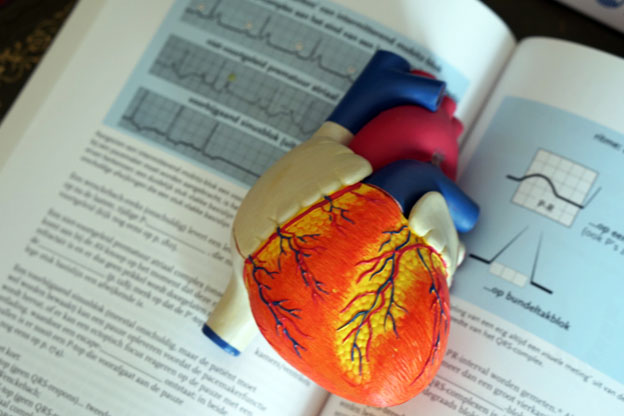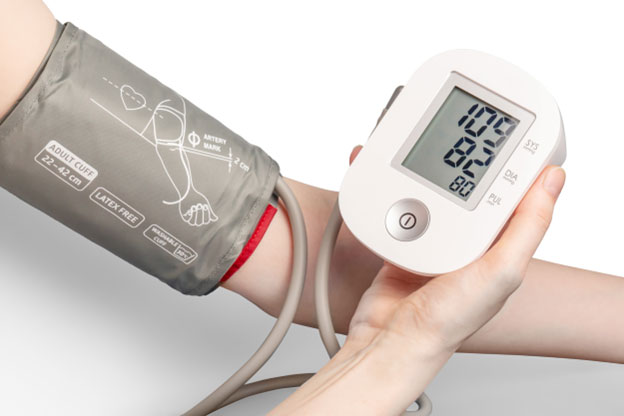
The diet you choose can have a direct impact on how your heart functions. Eating the wrong types of foods can increase your risk of developing heart palpitations, which are sensations of feeling like your heart is rapidly beating or fluttering. It's important to understand which foods to avoid if you experience heart palpitations, as they could potentially make them worse.

Understanding Heart Palpitations and Diet
Heart palpitations are sensations of a rapid, fluttering, or pounding heartbeat. They can occur when your heart beats too fast, too slow, or irregularly. While most cases of heart palpitations are harmless and may simply be due to anxiety, caffeine intake, or strenuous physical activity, they can also signal an underlying heart condition.
Foods to Avoid for Heart Palpitations
Caffeine-rich foods and beverages can be a common trigger for heart palpitations. Caffeine is a stimulant that increases heart rate and can disrupt heart rhythm, leading to irregular heartbeats. It is important to monitor caffeine intake from sources such as coffee, tea, energy drinks, and chocolate.
High-sugar foods and sweets can also impact heart health and contribute to heart palpitations. Consuming excessive amounts of sugar can cause a sudden spike in blood sugar levels, leading to an increased heart rate. Sugary snacks, desserts, and sweetened beverages should be consumed in moderation to maintain heart health.
Processed and high-sodium foods can affect heart palpitations due to their impact on blood pressure. Excessive sodium intake can raise blood pressure levels, placing strain on the heart and potentially triggering palpitations. Processed foods, canned goods, and salty snacks should be avoided or limited to prevent these effects.
Spicy foods may also be linked to heart palpitations. Spices like chili peppers and hot sauces can cause a temporary increase in heart rate and blood flow, potentially leading to palpitations. Individuals with heart conditions or a history of palpitations should be cautious when consuming spicy meals.
Artificial additives and preservatives found in packaged foods can also affect heart health and contribute to palpitations. Certain additives, such as food colorings, can trigger allergic reactions and increase heart rate in sensitive individuals. It is important to read labels and avoid packaged foods containing artificial additives whenever possible.
Overall, individuals experiencing heart palpitations should maintain a healthy diet that prioritizes whole, unprocessed foods. It is also essential to keep a food diary to identify any specific triggers and consult with healthcare providers for proper evaluation and management of heart palpitations.
Moderation and Balanced Diet
Moderation and portion control are key factors in maintaining heart health and preventing heart palpitations. It is important to be mindful of the quantity of food we consume to avoid overloading our bodies and potentially triggering palpitations.
To practice portion control, it can be helpful to use smaller plates and bowls, serve yourself appropriate portions, and avoid going back for seconds. By being mindful of portion sizes, we can prevent eating too much at once, which can put a strain on the heart and lead to palpitations.
In addition to portion control, adopting a balanced and nutrient-rich diet is crucial for heart health. Including a variety of whole grains, lean proteins, fruits, and vegetables in our meals provides essential nutrients while reducing the risk of palpitations. Whole grains such as oats, brown rice, and quinoa are rich in fiber and nutrients, while lean proteins like chicken, fish, and legumes provide necessary amino acids without excess fat.

Adding plenty of fruits and vegetables to our meals ensures we receive a wide range of vitamins, minerals, and antioxidants necessary for a healthy heart. Opting for colorful produce like berries, leafy greens, sweet potatoes, and tomatoes is especially beneficial.
By practicing portion control and maintaining a balanced, nutrient-rich diet, we can support heart health and minimize the risk of heart palpitations. It is always recommended to consult with a healthcare provider or nutritionist for personalized advice, especially if you have a history of heart conditions or palpitations.
Lifestyle Tips for Managing Heart Palpitations
Lifestyle plays an important part in managing heart palpitations. In addition to dietary changes, there are several other lifestyle and behavior modifications that can help reduce the occurrence of palpitations.
It is important to incorporate regular physical activity into our daily lives to maintain a healthy heart and body. Exercise helps reduce stress, which can be a common trigger for palpitations. Aim for at least 30 minutes of moderate physical activity, such as walking or swimming, most days of the week.
Getting adequate sleep is also essential for managing heart palpitations. Lack of sleep can lead to increased stress and anxiety levels, which may ultimately trigger palpitations. Try to maintain a consistent bedtime routine and aim for 7-9 hours of quality sleep each night.
Stay Hydrated
Hydration plays a crucial role in maintaining overall heart health. When the body is properly hydrated, the blood volume increases, which helps the heart pump blood more effectively. This ensures that oxygen and essential nutrients are transported efficiently to the body's tissues and organs.
Staying hydrated is particularly important for individuals experiencing heart palpitations. When dehydration occurs, the electrolyte balance in the body can be disrupted, potentially leading to irregular heart rhythms and an increase in heart palpitations. Therefore, maintaining proper hydration is essential in managing and reducing the frequency of palpitations.
To stay adequately hydrated, it is recommended to drink plenty of water throughout the day. Water is a low-sugar, calorie-free beverage that replenishes the body's fluids without adding unnecessary sugars or artificial additives. It is also advisable to limit or avoid sugary drinks such as soda or fruit juices, as these can contribute to dehydration and negatively impact heart health.

When consuming beverages, it's important to opt for those that do not contain excessive amounts of caffeine. While moderate caffeine intake may not pose significant risks to heart health, excessive amounts can increase heart rate and trigger palpitations in susceptible individuals. Therefore, choosing beverages with lower caffeine content or opting for caffeine-free options can help manage palpitations.
Stress Reduction Techniques
Stress can have a significant impact on heart palpitations. When the body is under stress, the release of stress hormones can cause an increase in heart rate and blood pressure, leading to an irregular heartbeat and palpitations. Therefore, it is important for individuals experiencing palpitations to manage their stress levels effectively.
One effective way to reduce stress and promote heart health is through the practice of stress-reduction techniques. Meditation is a powerful tool that can help calm the mind and relax the body, reducing the stress response. Deep breathing exercises can also be beneficial in managing stress and regulating heart rate. By taking slow, deep breaths, individuals can activate the body's natural relaxation response, promoting a sense of calm.
Engaging in regular physical exercise is another effective way to reduce stress and promote heart health. Exercise releases endorphins, which are natural mood boosters, helping to reduce stress and improve overall well-being. Additionally, regular exercise can help regulate heart rate and promote healthy blood flow.
Incorporating stress-reduction techniques into daily routines can offer significant benefits for individuals experiencing heart palpitations. By managing stress levels effectively through practices such as meditation, deep breathing, and exercise, individuals can reduce their risk of palpitations and improve their overall heart health.
Conclusion
In conclusion, proper care involves avoiding certain foods that can trigger heart palpitations. Foods and beverages such as energy drinks, caffeine, spicy meals, and sugary foods should be limited or avoided. It is essential to maintain a healthy diet that promotes heart health, including foods rich in olive oil, and plenty of water, and lowering intake of excessive alcohol and processed foods.

However, it is important to note that triggers for heart palpitations can vary from person to person, and it is recommended to consult healthcare professionals for personalized advice. They can assess individual health conditions, prescribe medications if necessary, and provide guidance on maintaining a healthy diet and lifestyle to manage heart palpitations effectively. Taking medical conditions and prescription medications into consideration, healthcare providers can create a tailored plan that minimizes the risk of heart palpitations and ensures optimal heart health.
Frequently Asked Questions
Can caffeine-free products still trigger palpitations?
While caffeine is a common trigger for heart palpitations, it is not the only one. Some individuals may also have sensitivities or allergies to certain food additives or ingredients that can cause palpitations even in caffeine-free products. It is important to read food labels carefully and pay attention to any possible triggers in your diet.
There are alternatives to caffeine, such as herbal teas and decaffeinated coffee, which may be better suited for those prone to palpitations. Additionally, engaging in relaxation techniques and regular exercise can help reduce the risk of palpitations.
Are heart palpitations always related to diet?
No, heart palpitations can be caused by various factors, not just diet. Medical conditions such as atrial fibrillation or heart disease, certain medications, hormonal changes, stress, anxiety, and even vigorous exercise can also lead to heart palpitations. However, paying attention to your diet and identifying any potential triggers can help manage and prevent palpitations.
What are some heart-healthy alternatives to salty snacks?
Instead of reaching for salty snacks that may contain excessive amounts of sodium, consider heart-healthy alternatives. Opt for fresh fruits like berries or apples, raw vegetables with hummus, unsalted nuts and seeds, whole grain crackers with low-fat cheese, or yogurt with no added sugars. These options provide essential nutrients without the added sodium.
Remember, if you frequently experience heart palpitations, it is crucial to seek medical attention and discuss your symptoms with a healthcare provider. They can help identify the underlying cause and provide appropriate guidance based on your individual health conditions.